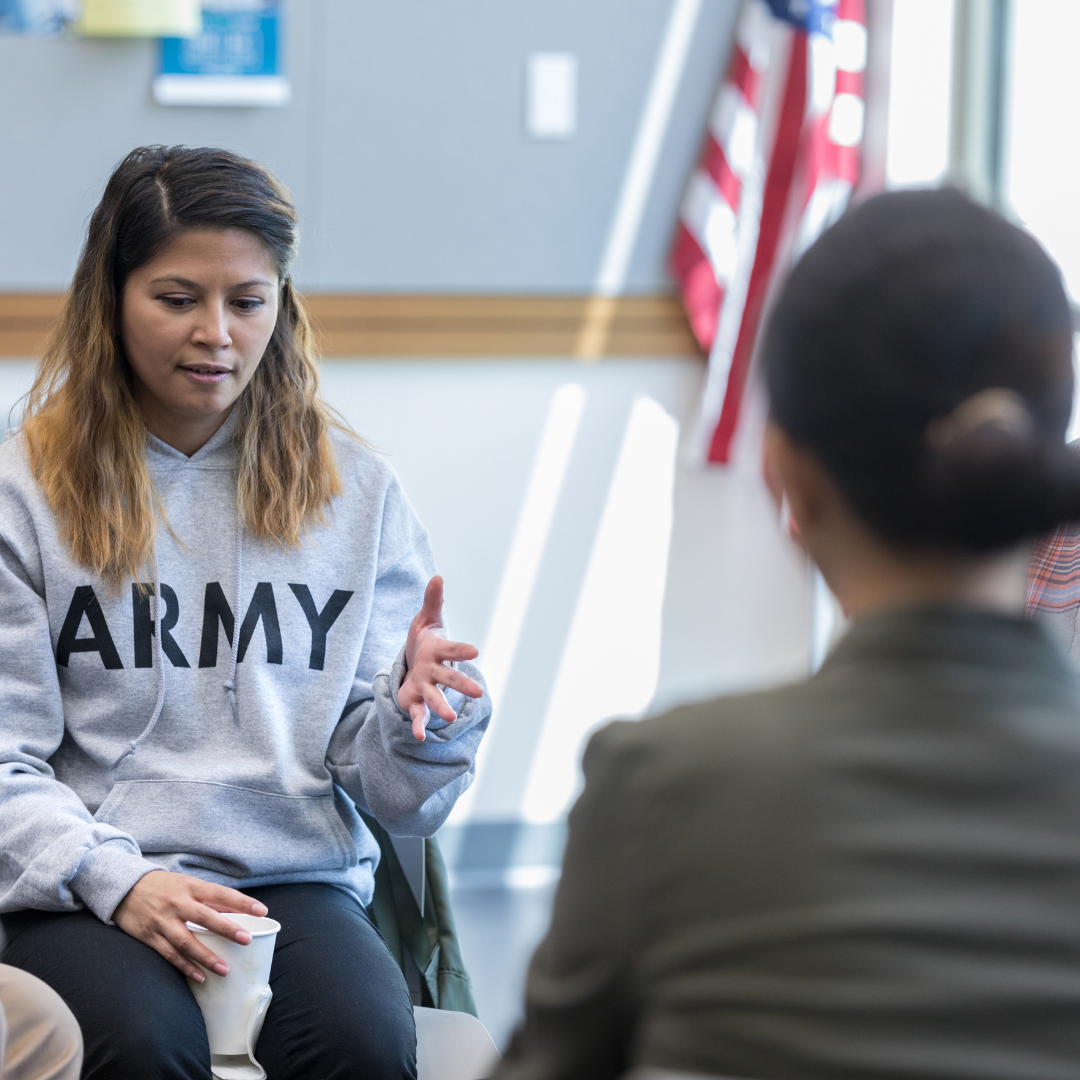
How to Talk to Veterans: Lessons from Melissa and David Seligman
How to Talk to Veterans: Lessons from Melissa and David Seligman
By James Porter
While attending an Employee Assistance Program (EAP) conference in North Carolina, I had the opportunity to hear Melissa and David Seligman speak about their personal journey as a military family. David, a combat veteran who served in Iraq and was wounded in battle, and Melissa, his wife, offered a powerful and deeply personal perspective on what it’s like to live with combat-related trauma and how civilians can engage more thoughtfully with veterans.
Their session was eye-opening and provided important takeaways about how to approach conversations with veterans, especially those who may be coping with PTSD or moral injury.
Understand the Weight of Moral Injury
One of the key concepts they discussed was moral injury — a wound to the conscience that occurs when someone feels complicit in a traumatic event. For many veterans, this can weigh as heavily, if not more, than physical injuries. Combat PTSD is often compounded by these moments when service members may feel they acted in ways that go against their moral compass, whether by necessity or circumstance.
When approaching conversations with veterans, it’s important to be mindful of this unseen injury. Unlike PTSD, which we often associate with hypervigilance or flashbacks, moral injury is rooted in guilt and shame. It can make it even harder for veterans to share their stories openly.
Language Matters
Melissa made a point that stuck with me: use the correct terminology when addressing veterans. It shows respect for their service and branch. For example:
- Someone who served in the Army is a Soldier.
- A member of the Marine Corps is a Marine.
- Someone in the Air Force is an Airman.
-
A person who served in the Navy may be called a Sailor or a Seaman (depending on their rank).
Referring to a Marine as a soldier, for example, can feel dismissive or uninformed to those who value their distinct identity within the military. This small attention to detail helps build rapport and trust.
Skip the "Hero" Labels and Gratitude Scripts
David shared how uncomfortable it made him feel when people said, "Thank you for your service." While the sentiment is usually well-intentioned, it often leaves veterans unsure how to respond. David’s experience isn’t unique. Another conference attendee, Jon R. Murphy, an Employee Assistance Counselor, and fellow veteran who works for the US House of Representatives, echoed this, saying he also avoids using that phrase when speaking with veterans.
Many service members feel conflicted about being called a "hero," especially those who have lived through harrowing situations where comrades were lost. Even Medal of Honor recipients, David explained, often struggle with the term. For them, surviving an ordeal while others didn’t can trigger survivor’s guilt, making such praise feel hollow or even painful.
The Power of Patience and Presence
Perhaps the most powerful message from their talk was about the value of patience — both in relationships and in conversations. David mentioned that the patience of a doctor he was seeing made all the difference. The same was true with Melissa’s support at home. "Her patience kept me alive through suicidal ideation," he shared candidly.
When a veteran shares their story, especially details that might be hard to hear — such as standing in a pool of blood or surviving a mass casualty event where dozens lay dead — it’s crucial not to become visibly emotional or distressed. Melissa and David explained that when a listener reacts too strongly, it can make the veteran feel guilty for having opened up in the first place. It may even discourage them from sharing further.
Instead, being a steady, grounded listener allows them the space to process without worrying about how their story is affecting you. The focus should stay on the veteran, not on how you are reacting.
Respecting Boundaries
David also mentioned that there are certain topics he simply doesn’t want to discuss, like a particularly traumatic incident involving a mosque where 72 people were killed. It's critical to respect these boundaries. Not every story needs to be told, and pressing for details can do more harm than good.
Sometimes, veterans may choose to share — other times, they may not. What matters most is allowing them that choice without pressure or judgment.
A Call for Thoughtfulness
Hearing Melissa and David speak was a reminder of how layered and complex the military experience can be, especially when it comes to combat veterans. Conversations with veterans shouldn’t be formulaic or based on clichés. Instead, they require presence, patience, and an understanding that trauma doesn’t fit neatly into words.
While "Thank you for your service" might feel like the right thing to say, consider simply listening instead. Be mindful of the language you use, honor boundaries, and offer the quiet gift of being there without needing to "fix" or label the experience.
Melissa and David’s story wasn’t just about the challenges of deployment or trauma; it was about the power of connection, listening, and holding space for pain. In many ways, these are lessons that apply far beyond conversations with veterans — but when applied here, they could be lifesaving.




Erica Tuminski
Author